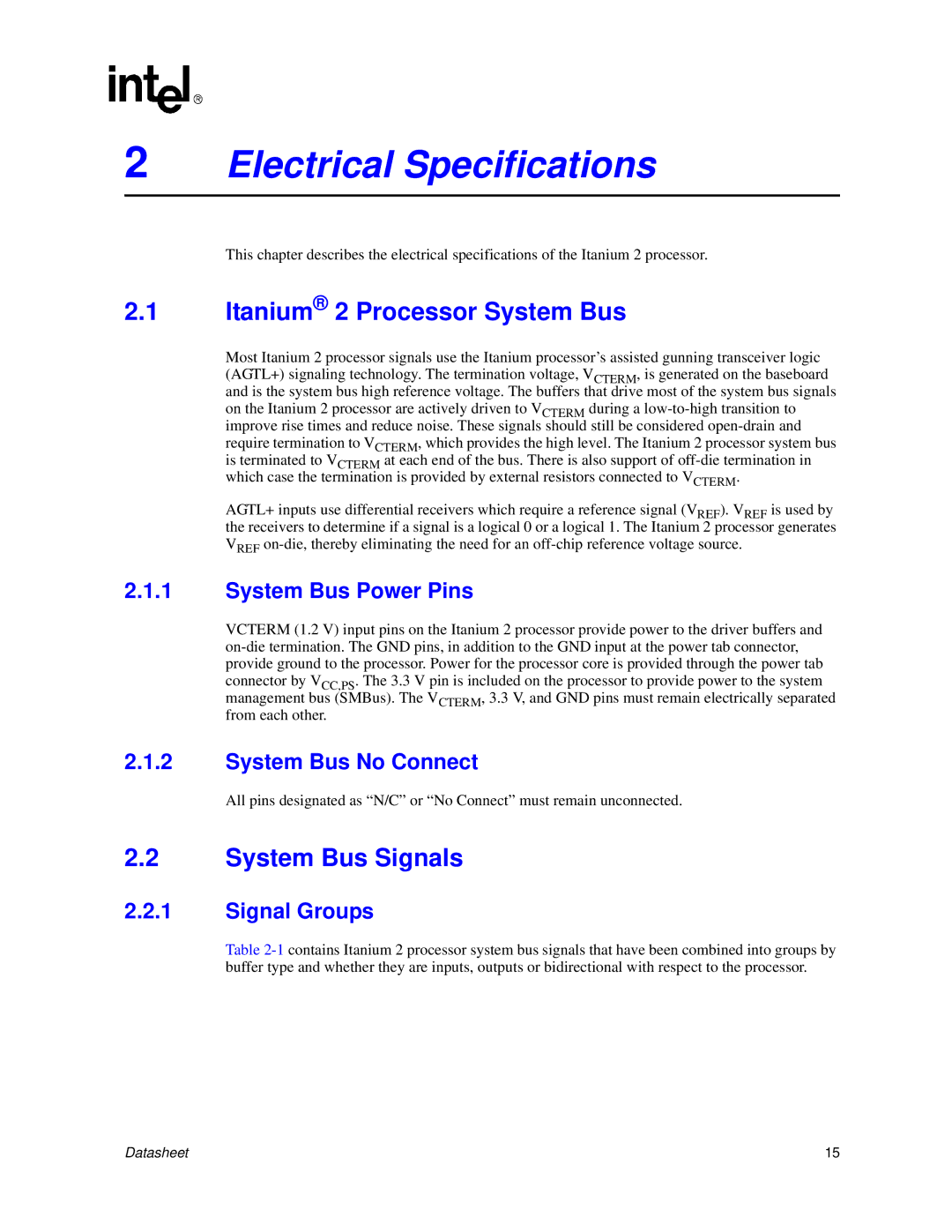
2Electrical Specifications
This chapter describes the electrical specifications of the Itanium 2 processor.
2.1Itanium® 2 Processor System Bus
Most Itanium 2 processor signals use the Itanium processor’s assisted gunning transceiver logic (AGTL+) signaling technology. The termination voltage, VCTERM, is generated on the baseboard and is the system bus high reference voltage. The buffers that drive most of the system bus signals on the Itanium 2 processor are actively driven to VCTERM during a
AGTL+ inputs use differential receivers which require a reference signal (VREF). VREF is used by the receivers to determine if a signal is a logical 0 or a logical 1. The Itanium 2 processor generates VREF
2.1.1System Bus Power Pins
VCTERM (1.2 V) input pins on the Itanium 2 processor provide power to the driver buffers and
2.1.2System Bus No Connect
All pins designated as “N/C” or “No Connect” must remain unconnected.
2.2System Bus Signals
2.2.1Signal Groups
Table
Datasheet | 15 |
